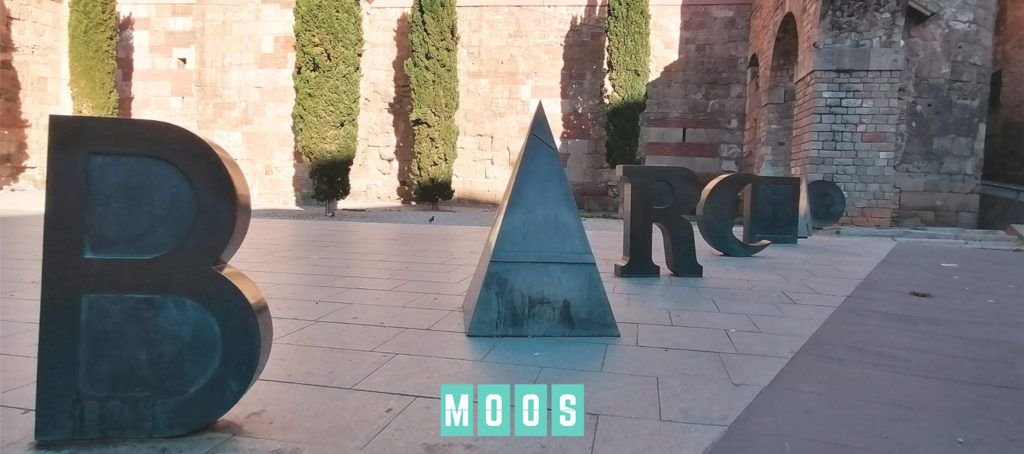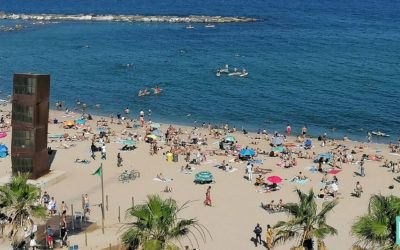Discovering the exact origin of the name of a city as old as Barcelona, with more than 2000 years of history, is not so easy. Over the years, various scholars on the subject have developed different theories to explain its name. But with few records of the time, it was not possible to reach a definitive conclusion.
However, there are some hypotheses and we share them with you below.
Although those who officially founded Barcelona, in the 1st century B.C. were the Romans, these lands were previously inhabited by the Layetans, who had come into contact with other Mediterranean cultures, the sea being the key point of that connection. Etruscans, Phoenicians and Greeks had already passed through these lands, but without settling.
Layetan coins (Iberian drachmas minted at the end of the 2nd century BC) were found on the Montjuïc mountain with an inscription that, when translated, is the word “Barkeno”. The Layetans, we said, had contact with other cultures, and the Greek will be the most influential, since it was already settled in the north of Catalonia, in Empúries.

That word, Barkeno, will be the one that will evolve until reaching “Barcelona” today.
WHERE DOES BARKENO COME FROM?
That is the big question.
For some, its origin is related to the Barca lineage. Before the Romans arrived, Carthage had already advanced on the Iberian Peninsula, trying to gain ground and recover after the First Punic War. On his way, Hamilcar Barca (or his son, Hannibal, the famous Carthaginian general considered to be one of the greatest military strategists in history), is attributed with the firsts bases of this city with the name of Barca Nova: a new Barca , in tribute and reference to the lineage of his family.
Another version, more “poetic” if you like, involves Hercules, hero of Roman mythology. Legend has it that on their journey through the Mediterranean in search of the Golden Fleece with Jason and his Argonauts, the sailors found themselves in the middle of a storm that destroyed the boats. The ninth boat, Barca Nona, appeared destroyed on the shores of what is now Barcelona. And attracted by the place, Hercules decides to found a city that he will give in the name of that boat: Barcanona … Barcelona, sounds similar, doesn’t it?
However, there is no archaeological evidence to demonstrate these options.
AND WE ARRIVED AT THE ROMAN FOUNDATION.
It occurs, in fact, at the end of the 1st century BC. (around 10 B.C.). Here we do have evidence showing the foundation and its full name: Colonia Julia Augusta Faventia Paterna Barcino.
Yes, yes, that is the full name of Barcelona.
That of Julia and Augusta refers to the Roman emperor who decides the foundation of the city: Augustus. The word Julia is related to the family of the emperor, the gens Julia.
Faventia seems to be related to a sponsoring character. We are left, then, with Paterna and Barcino, precisely the two words that have generated the most problems to identify their origin.
Paterna is likely to do with remembering Augustus’s intention to found a colony for veterans of his army.
And Barcino … Barcino … Beyond legends, some scientists have related the root of the word Barcino to a Celtic, Iberian or Ligurian origin.

What can be said with a little more certainty is that the Romans have taken the word Barkeno, which we already talked about and that was already circulating in these lands before the arrival of the Roman Empire, and adapted it to Latin phonetics. In this way, the letter “k” is replaced by the “c”.
Now, the last step: from Barcino to Barcelona. We must say that the change was an evolution that went through variations such as Barchinonam, Barcilonam, Barcilona … In the 6th century, when the Visigoths were already establishing themselves in these lands, numismatics and the councils wrote the word Barcinona. And in the Middle Ages, since the 9th century, it is known as Barchinona.
It will only be necessary to let the time pass so that the name sounds like it sounds today.
But if on your tour of the Gothic, you pass by the Cathedral and you find some bronze and aluminum letters that form the word Barcino, then, you will already know why they are there. All you have to do is take your photo, which has become a classic of walks in Barcelona.
Sources: BCN.cat / Catalunya Press







0 Comments